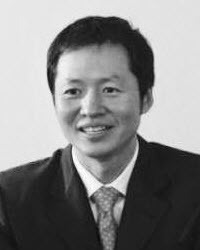[Management in Korea] When career momentum stops, look beneath the surface
By Korea HeraldPublished : Nov. 25, 2018 - 14:54
Management in Korea is a regular column written by the members of Egon Zehnder Seoul, touching on various aspects of Korean enterprises and business leaders and offering management tips. -- Ed.
As advisers on leadership and leadership issues, there is one story we’ve seen unfold time and again in Korea: An executive builds up a solid track record over 20 years of meeting deadlines, exceeding goals and assuming positions of greater and greater responsibility. Furthermore, he or she has a sterling reputation for personal reliability and loyalty, and is thus poised to ascend into the upper ranks of management.
As advisers on leadership and leadership issues, there is one story we’ve seen unfold time and again in Korea: An executive builds up a solid track record over 20 years of meeting deadlines, exceeding goals and assuming positions of greater and greater responsibility. Furthermore, he or she has a sterling reputation for personal reliability and loyalty, and is thus poised to ascend into the upper ranks of management.

And then, without warning, the momentum evaporates. It may be that that executive suffers a high-profile failure, but more often, there is nothing specific to point to. But slowly, the invitations to play golf with the chairman and other critical social opportunities stop coming, and when a rising leader is needed to turn around an underperforming market, someone else is called. A few years later, rather than being appointed by the chairman to lead a business unit, as our executive had until recently hoped, he or she is eased into retirement.

A once-promising career leads to a very disappointing ending. But even more than disappointing, it is confusing. These executives ask themselves over and over what they did wrong -- and they have no answer. Didn’t they follow all the rules?
They did -- to an extent. Having helped many chairmen fill senior positions over the years, we have observed that while loyalty and dependability continue to be essential at the upper levels of an organization, they are no longer enough, for two reasons.
First, the issues faced by senior management -- such as how to maneuver large chaebol to compete effectively with a wide range of global competitors or how to foster innovation in traditionally hierarchical environments -- are too complex to be solved merely by following directions of the person to whom you report. Success depends on your ability to read and respond to more nuanced situations with customers or coworkers than you have faced in the past, or perhaps to chart a path that follows the vision of your superior while also interjecting some new approaches.
Second, rising into the middle levels of an organization and beyond almost always involves not only more operational responsibility -- bigger territory, larger projects and so on -- but also leadership responsibility. Effectively managing teams of people around a common goal requires a different set of competencies and experiences than, say, designing products executing a marketing campaign or other business functions.
Consider, for example, the challenge of sales -- a core competency at many Korean companies. Most chaebol have structured training programs for entry-level hires that cover the company’s products, markets and customers, as well as what is expected in terms of frequency of customer contact, attendance at industry events and performance quotas. Being “good at sales” comes down to tirelessly executing on these expectations. When obstacles are encountered, the solution is to work harder and with more determination.
But each career advance brings larger contracts with more risk and complications. At some point, being diligent is no longer enough. You also have to have empathy, emotional intelligence and the patience and confidence not to push too hard.
Furthermore, you are now in charge of sales teams. Meeting your goals is no longer a matter only of how hard you work. You also need to be able to manage others. While it might seem on the surface that this requires little more than issuing orders, the most effective managers are those with the strong interpersonal skills needed to develop, motivate and structure their teams. This becomes more and more the case the higher up the organization one climbs.

Unfortunately, this broadening of expectations is nowhere discussed or addressed in Korean business culture. We act if the behaviors that make someone a “success” at the age of 23 will be equally effective at 43. Of course, this isn’t the case. The problems that come from this lack of direction are magnified by the pyramidal structure of most organizations, as each step up the ladder becomes more challenging and more competitive. This means that a recent graduate of Seoul National University or Korea Advanced Institute of Science and Technology is likely to have a clearer picture of what they need to succeed than an executive with two decades of experience.
In Korea, those who reach the higher levels or leadership tend to be those who naturally have the wider span of talents needed, or who can intuit and adapt accordingly. But very few people have these innate gifts, which means that they are a significant risk of having their career stall when the talents that they do have -- plus, of course, their dedication and loyalty -- are no longer enough.
If you find yourself losing momentum without an obvious reason, the most likely way forward is to figure out the competency where you have the most room for improvement. This is true even for chief executives.
In our global survey of more than 400 CEOs, many of the respondents viewed the experience of leading a large organization as a personal journey of continuous transformation. The challenge is that the area needed work almost certainly won’t be something concrete, like having a better understanding of competitor products. Instead, it’s more likely to be something far less tangible, like taking the time to really listen to the needs of potential customers before rushing ahead to offer them your pre-determined solution.
If you have a mentor or a coach, that person can help guide you to an understanding of where you might need to adopt a new way of thinking. Sometimes, however, those insights can be spurred on from less direct and surprising sources: From reading a thought-provoking book, taking a hike through the countryside or even watching a fun, escapist movie with friends.
If you are lucky, and are open to them, these experiences can lead you to ask yourself the same sorts of probing questions that a coach or mentor might ask. Regardless of how you get there, however, sidestepping the derailment that befalls so many talented Korean executives requires looking beneath the surface. Indeed, it is all the more needed because it is so often neglected.
By Eugene Kim and Kim Ah-jeong
Eugene Kim is the managing partner of advisory firm Egon Zehnder Seoul. He can be reached at Eugene.Kim@egonzehnder.com. Kim Ah-jeong is the head of research at Egon Zehnder Seoul. She can be reached at AJ.Kim@egonzehnder.com. -- Ed.
-
Articles by Korea Herald



















![[Today’s K-pop] Treasure to publish magazine for debut anniversary](http://res.heraldm.com/phpwas/restmb_idxmake.php?idx=642&simg=/content/image/2024/07/26/20240726050551_0.jpg&u=)